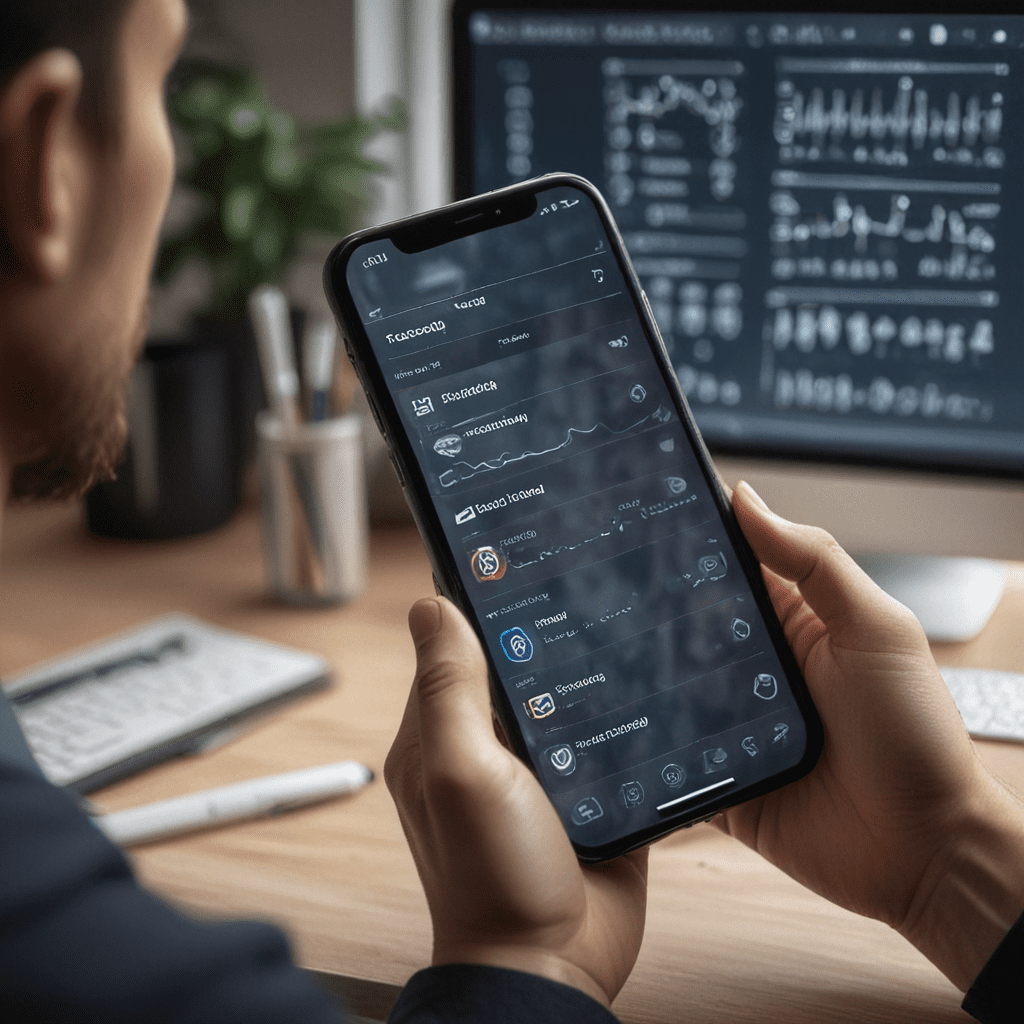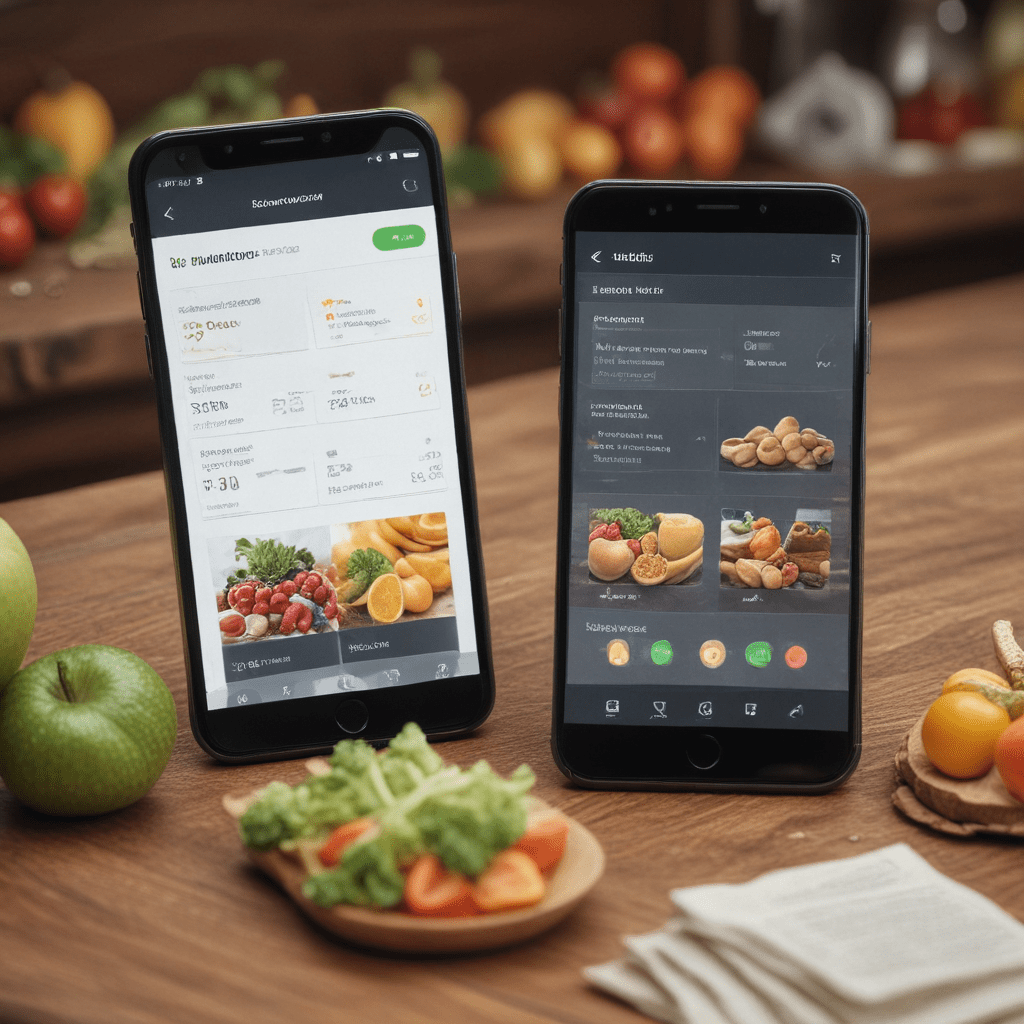
Mobile App Development for Personalized Coaching: Tools and Solutions
1. Understanding Personalized Coaching and Its Impact
Personalized coaching has revolutionized the fitness and wellness industry, enabling individuals to achieve their goals with tailored guidance and support. Mobile apps have played a pivotal role in fostering personalized coaching, providing a convenient and accessible platform for fitness enthusiasts, health-conscious individuals, and anyone seeking guidance on their journey to well-being.
2. Benefits of Mobile Apps in Personalized Coaching
Mobile apps offer numerous benefits for personalized coaching, including:
- Personalized Training Plans: Apps can create tailored training plans based on individual goals, fitness levels, and preferences.
- Real-Time Tracking and Feedback: Progress is tracked and analyzed in real-time, providing valuable feedback and insights.
- Remote Support: Apps facilitate remote communication with coaches, allowing for constant support and guidance.
- Convenience and Accessibility: Coaching sessions can be accessed anytime, anywhere, making them more accessible and convenient.
- Gamification and Motivation: Apps incorporate gamification elements and motivation strategies to enhance engagement and encourage progress.
3. Selecting the Right Mobile App Development Platform
Choosing the right mobile app development platform is crucial for the success of a personalized coaching app. Factors to consider include:
- Native vs. Cross-Platform Development: Native apps offer better performance and customization but are limited to specific platforms (iOS or Android). Cross-platform development allows for wider reach but may compromise performance.
- Features and Integrations: Consider the specific features and integrations required for personalized coaching, such as GPS tracking, health data syncing, and payment gateways.
- Cost and Timeline: App development costs and timelines vary depending on the platform, features, and complexity of the project.
4. Key Features for Personalized Coaching Mobile Apps
Effective personalized coaching mobile apps should include key features such as:
- Personalized Training Plans: Generate tailored workout routines based on individual goals, preferences, and fitness levels.
- Progress Tracking: Track workouts, nutrition, and other metrics to monitor progress and identify areas for improvement.
- Messaging and Communication: Facilitate direct communication between coaches and clients for real-time support and feedback.
- Goal Setting and Motivation: Help users set realistic goals, track their progress, and stay motivated throughout their journey.
- Integration with Wearables: Connect to fitness trackers and wearable devices to seamlessly track activity levels and health data.
5. Tools for Personalized Content Creation and Delivery
Creating engaging and personalized content is essential for successful personalized coaching. Tools and technologies such as:
- Content Management Systems (CMS): Centralized platforms for creating, managing, and delivering personalized content.
- Artificial Intelligence (AI): AI algorithms can analyze user data and preferences to tailor content and recommendations.
- Push Notifications: Send timely and targeted notifications to engage users and provide valuable insights.
- Video and Streaming Services: Deliver video content, live streams, and personalized workouts to enhance user experience.
- Email Marketing: Leverage email automation to nurture relationships and provide ongoing support.
6. Data Analytics and Tracking for User Progress
Data analytics and tracking are crucial for personalized coaching mobile apps. By leveraging data, coaches can gain insights into user behavior, identify areas for improvement, and adjust training plans accordingly. Key metrics to track include:
- Workout Consistency: Monitoring workout frequency and duration helps coaches assess adherence to training plans.
- Progress Towards Goals: Tracking progress towards specific goals, such as weight loss or fitness milestones, allows for timely adjustments.
- Health Data: Integration with wearables and health trackers provides valuable insights into sleep patterns, heart rate, and calorie expenditure.
- User Engagement: Measuring app usage, such as session duration and feature utilization, helps coaches understand user preferences and areas for improvement.
- Feedback and Surveys: Gathering user feedback through surveys and polls ensures the app meets their needs and provides a positive experience.
7. Integration with Wearable Devices and Health Trackers
Seamless integration with wearable devices and health trackers enhances the personalized coaching experience. By syncing with these devices, apps can:
- Track Physical Activity: Monitor steps, distance covered, and calories burned to provide a comprehensive view of user activity levels.
- Analyze Sleep Patterns: Monitor sleep duration, quality, and cycles to identify potential sleep issues and provide guidance on sleep hygiene.
- Measure Heart Rate and Blood Pressure: Track vital health metrics to assess cardiovascular health and provide personalized recommendations.
- Monitor Nutrition: Integrate with nutrition-tracking apps to monitor calorie intake, macronutrient distribution, and hydration levels.
- Provide Real-Time Feedback: Send notifications and alerts based on real-time health data, such as heart rate variability or sleep disturbances.
8. Gamification and Motivation Strategies
Gamification techniques and motivation strategies are powerful tools to enhance user engagement and adherence to training plans. Effective apps incorporate elements such as:
- Reward Systems: Offer rewards and incentives for completing workouts, achieving goals, and staying consistent.
- Progress Bars and Achievements: Display visual representations of progress towards goals to keep users motivated and engaged.
- Leaderboards and Challenges: Create a sense of competition and foster community by implementing leaderboards and group challenges.
- Streaks and Milestones: Encourage users to stay consistent by tracking workout streaks and celebrating milestones.
- Personalized Encouragement: Provide tailored messages, tips, and motivational quotes to keep users focused and motivated.
9. Challenges and Best Practices in Mobile App Development
Mobile app development for personalized coaching presents unique challenges, including:
- Data Security and Privacy: Ensuring the security and privacy of user data is paramount. Apps should comply with industry regulations and employ robust security measures.
- App Usability and User Experience: Creating a user-friendly and intuitive app is crucial for user satisfaction and retention.
- Cost-Effective Development: Balancing feature-richness and cost-effectiveness is essential for app success.
- Continuous Updates and Maintenance: Apps require regular updates to address bugs, improve functionality, and incorporate new features.
- Collaboration with Experts: Involving fitness professionals and healthcare experts in the development process ensures accuracy and credibility of the app's content.
10. Case Studies and Examples of Successful Personalized Coaching Apps
Numerous successful personalized coaching apps have emerged in the market, demonstrating the effectiveness of this approach. Here are a few notable examples:
- BetterMe: A comprehensive health and fitness app that provides personalized workout plans, nutrition advice, and progress tracking.
- Fitbit Coach: An app that offers personalized training plans, real-time feedback, and integration with Fitbit devices for activity tracking.
- MyFitnessPal: A popular nutrition and calorie-tracking app that integrates with fitness trackers and provides personalized meal plans.
- Peloton: A fitness platform that combines live and on-demand classes with personalized workout recommendations and progress tracking.
- Sleep Cycle: An app that monitors sleep patterns, tracks sleep quality, and offers personalized sleep improvement tips.
FAQ
What are the key considerations for choosing a personalized coaching app?
Look for apps that offer tailored training plans, real-time progress tracking, communication with coaches, goal-setting features, and integration with wearable devices.
How can I ensure the accuracy and credibility of the app's content?
Check if the app has been developed in collaboration with fitness experts or healthcare professionals. Look for apps that provide evidence-based information and personalized guidance.
What strategies can I use to stay motivated and consistent with my training?
Effective apps incorporate gamification elements, reward systems, progress bars, leaderboards, and personalized encouragement to keep users engaged and motivated.


